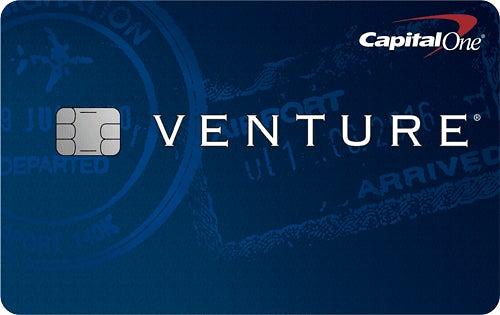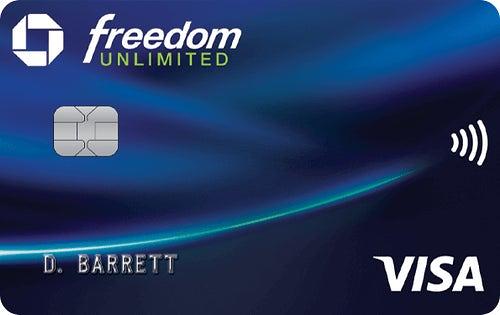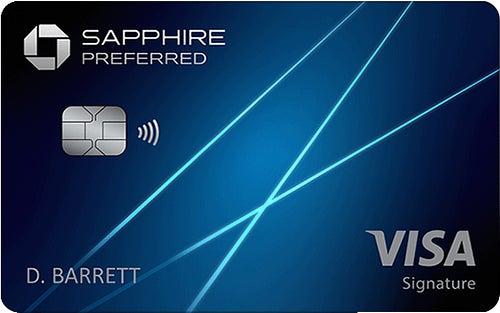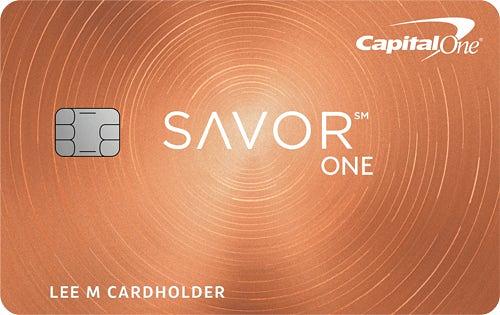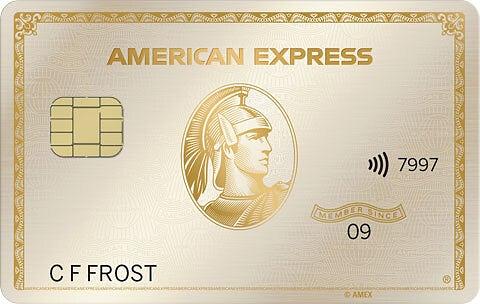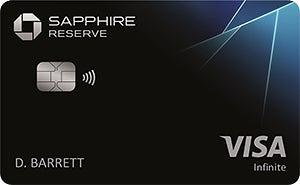The offers on this page are from advertisers who pay us. That may influence which products we write about, but it does not affect what we write about them. Here's an explanation of how we make money and our Advertiser Disclosure.
The best credit cards for August 2024
Choosing a new credit card depends greatly on your personal goals, spending habits, and preferences. Some people love rewards credit cards, others like cash back, and still others may forgo rewards for a great introductory APR. We’ve gathered our best credit card picks over various categories. Each one also links to our full list of the best credit cards within that category. Whether you’re looking for your first or fifth credit card, this page is a great starting point.
The best credit card picks for August 2024
Best cash-back card: Blue Cash Preferred? Card from American Express
Annual fee: $95 ($0 intro fee for the first year)
Welcome offer: Earn a $250 statement credit after spending $3,000 within the first 6 months
Rewards*:
6% cash back at U.S. supermarkets (up to $6,000 spent per year, then 1%)
6% cash back on U.S. streaming subscriptions
3% cash back at U.S. gas stations
3% cash back on transit (taxis, rideshare, parking, tolls, trains, buses, and more)
1% cash back on all other spending*Cash Back is received in the form of Reward Dollars that can be redeemed as a statement credit or at Amazon.com checkout.
Recommended credit score: Good to Excellent
More card details: After opening your card, get 0% APR on new purchases and balance transfers for 12 months (19.24%–29.99% variable APR after that). When you spend at least $9.99 on an auto-renewing Disney Bundle subscription, you’ll get a $7 statement credit back each month (up to $84 per year; valid only at Disney Plus.com, Hulu.com or Plus.espn.com in the U.S.). Cash Back is received in the form of Reward Dollars that can be redeemed as a statement credit or at Amazon.com checkout. (Terms apply; see rates and fees.)
Why we like it: Blue Cash Preferred offers one of the more versatile rewards structures among tiered cash-back cards today. And its rewards are focused on everyday categories, including shopping at supermarkets. Even with the $6,000 annual cap (large enough that many people won’t surpass it with regular spending), this is a huge benefit, as groceries are often among the highest-budget items. The solid welcome bonus, annual credits, and introductory 0% APR offer also sweeten the deal.
Perhaps most important is simply the Blue Cash Preferred’s earning potential. When ranking cash-back cards, we calculated an estimate of annual cash back based on consumer expenditure data from the Bureau of Labor Statistics. At $513.33 — even accounting for its annual fee after the first year — it’s hard to find a card offering more value on what Americans buy most.
More cash-back cards to consider
Capital One SavorOne Cash Rewards Credit Card
If you, like many Americans, spend much of your monthly budget on food — whether dining out or staying in — the SavorOne card from Capital One can offer incredible potential value for no annual fee. You’ll earn 3% cash back on dining, entertainment, grocery stores (excluding Target and Walmart), and popular streaming services. Plus, you get 8% cash back on Capital One Entertainment, 5% on hotels and rental cars through Capital One Travel, and 1% on everything else.
There’s also a cash welcome bonus worth $200 after spending $500 in the first three months, and a 0% introductory APR on new purchases and balance transfers for 15 months (with an ongoing 19.99%–29.99% variable APR). We estimate this card’s potential annual value at $447.38 based on average spending.
Recommended credit score: Good to Excellent
Citi Double Cash? Card
If simple rewards are what you’re looking for, the Citi Double Cash Card is definitely one to consider. It earns up to 2% cash back on every purchase: 1% when you make a purchase and another 1% when you pay it off. Through 2024, you’ll earn 5% cash back on hotels, car rentals, and attractions booked through Citi Travel.
For no annual fee, a baseline 2% cash back can be valuable no matter where you spend most. Though there aren’t many added benefits, you will get a $200 cash welcome bonus after spending $1,500 within the first six months, and a 0% intro APR on new purchases and balance transfers for 18 months (19.24%–29.24% ongoing variable APR).
Best balance transfer card: Wells Fargo Reflect? Card
Annual fee: $0
Intro offer: 0% intro APR for 21 months from account opening on qualifying balance transfers and new purchases (18.24%, 24.74%, or 29.99% variable APR after that)
Rewards: None
More card details: To qualify for the intro 0% APR, you must initiate a balance transfer within 120 days of account opening. The balance transfer fee is either $5 or 5% of the transferred balance, whichever is more. With this card, you can also qualify for cell phone protection against damage or theft, worth up to $600 after a $25 deductible.
Why we like it: The Wells Fargo Reflect’s 21-month introductory 0% APR period is one of the longest you’ll find today. With close to two years to pay down balances interest-free (you’ll pay 18.24%, 24.74%, or 29.99% variable APR after that), you can eliminate a significant amount of existing debt. You will pay a balance transfer fee and must make your transfer within a limited time period, but these are both common among this type of card.
The Reflect card doesn’t offer many benefits or perks beyond the intro period — if you’re looking for ongoing rewards, you’ll likely need to sacrifice a few months of 0% APR with a shorter intro period.
More balance transfer cards to consider
U.S. Bank Visa? Platinum Card
At 21 billing cycles with 0% APR, the U.S. Bank Visa Platinum is also among the longest introductory periods available today. There’s no annual fee, and the ongoing variable APR ranges from 18.74%–29.74%. The balance transfer fee is the greater of 3% or $5.
This is another good option if you’re solely focused on scoring the longest possible 0% APR, since there aren’t many ongoing benefits that the U.S. Bank Visa Platinum offers after the intro period ends.
Discover it? Balance Transfer
For no annual fee, you can get an introductory 0% APR on new purchases and balance transfers for 15 months (from the date of your first transfer, if you make it by April 10, 2024) with the Discover it Balance Transfer card. The ongoing variable APR is 17.24%–28.24%, and the balance transfer fee is 3% if you transfer your balance by April 10, 2024. After that, you’ll pay a 5% fee.
Not only is this card great for balance transfers, it also offers ongoing rewards. Earn 5% cash back on quarterly rotating bonus categories (up to the quarterly maximum with activation) and 1% back on other purchases. And though you may want to prioritize paying down your balance over the first year, you can benefit from using your card for purchases with Discover’s unlimited Cashback Match of all the spending over your first year. Just remember to only spend what you can afford to pay off each month to avoid taking on more debt.
Best travel card: Capital One Venture Rewards Credit Card
Annual fee: $95
Welcome offer: Enjoy $250 to use on Capital One Travel in your first cardholder year, plus earn 75,000 bonus miles after spending $4,000 within 3 months of account opening
Rewards:
5x miles on hotels and rental cars booked through Capital One Travel
2x miles on all other purchases
Recommended credit score: Good to Excellent
More card details: The Venture card has no foreign transaction fees and offers a statement credit up to $100 every 4 years for TSA PreCheck or Global Entry fees. You’ll also get Five Star status with Hertz rental cars and benefits, including a $50 experience credit when you book Lifestyle Collection hotel stays through Capital One Travel.
Why we like it: Travel credit cards and rewards programs can be daunting, especially for beginners. We like the Venture card because it offers great rewards value on travel spending without being too complicated. There aren’t any categories to memorize; just 2x miles on every purchase (boosted to 5x on travel spending through the portal).
Not only is it easy to earn rewards, but redemption is also simple. You can redeem the miles you earn for travel through Capital One’s portal, transfer them to partners, or cover any eligible travel purchases made with your card.
Another reason we like the Venture Card is its $95 annual fee. It’s low enough that you can easily earn the value back with the miles you earn, but a few added benefits help recoup the cost, too.
More travel cards to consider
American Express? Gold Card
The Gold Card from American Express is one of the best options for earning points toward future travel with the everyday purchases you make at home. You can earn:
4x points at restaurants worldwide (up to $50,000 spent per year, then 1x)
4x points at U.S. supermarkets (up to $25,000 spent per year, then 1x)
3x points on flights purchased with airlines or through Amex Travel
2x points on prepaid hotels and other eligible purchases booked through Amex Travel
1x on everything else.
When you sign up, you can earn a 60,000-point welcome bonus after spending $6,000 within the first six months. Plus, receive 20% back in statement credits on eligible purchases made at restaurants worldwide within the first six months, up to $100 back.
Though the Gold Card does carry a $325 annual fee, you can get the majority back in just annual credits (see rates and fees). Not only will you get up to $120 per year in Uber Cash* ($10 per month), but you will also earn up to $120 in annual dining credits ($10 per month at Grubhub, The Cheesecake Factory, Goldbelly, Wine.com, Milk Bar, or select Shake Shack locations; enrollment required).
Recommended credit score: Good to Excellent
*You must have the latest version of the Uber App downloaded and your eligible American Express Gold Card must be a method of payment in your Uber account; Amex benefit may only be used in United States
Chase Sapphire Reserve?
If you’re a frequent traveler looking to get more for your time spent away from home, the Chase Sapphire Reserve is a top choice. To start, you’ll get a $300 annual travel credit to help offset the $550 annual fee. Rewards range from 10x points on hotels and rental cars booked through Chase, 5x points on flights booked through Chase, 3x points on other travel spending (all earned after the first $300 spent on travel per year), 3x points on dining, and 1x on everything else.
After signing up, you can earn a 60,000-point welcome bonus when you spend $4,000 within the first three months. Ongoing benefits include up to $100 TSA PreCheck/Global Entry fee credit, airport lounge access with Priority Pass Select, discounts and rewards with Lyft, DoorDash, Instacart, Peloton, and more.
You’ll see some of the best value from the Sapphire Reserve when you’re ready to redeem rewards. You can transfer points to Chase’s travel partners or redeem points through Chase Travel with a 50% boost (1.5 cents per point) for the highest redemption value. If you choose this option, your 60,000-point welcome bonus could be worth up to $900 in travel.
Recommended credit score: Excellent
Learn more: See our picks for the best Chase credit card
Best student card: Discover it? Student Cash Back
Annual fee: $0
Welcome offer: Unlimited match of all the cash back you earn over your first account year.
Rewards:
5% cash back on rotating quarterly categories, up to $1,500 in combined purchases each quarter
1% cash back on all other purchases
More card details: This cash-back card can help students build credit while earning rewards. Discover even specifies that you don’t need a credit score to qualify for the Discover it Student. Rotating quarterly categories are focused on everyday rewards, such as restaurants, drugstores, wholesale clubs, specific retailers like Target or PayPal, and more.
Why we like it: Among student cards available today, the Discover it Student offers among the best rewards value. The rotating quarterly 5% bonus categories cover a variety of everyday spending — and if you max out the categories each quarter, you can earn up to $300 cash back every year.
It also has the highest potential welcome bonus among student cards we’ve found. With Discover’s Cashback Match feature, you’ll double all the cash back you earn over your entire first year, with no limit.
When you use this card responsibly while in school and pay it off in full each month, you can build your credit score and avoid taking on any added debt. After graduation, you can continue to earn rewards with your card in 5% bonus categories and potentially qualify for a higher credit line.
More student cards to consider
Bank of America? Travel Rewards Credit Card for Students
Travel rewards aren’t just for frequent business travelers; you can earn travel rewards while building credit as a student. The Bank of America Travel Rewards Credit Card for Students has no annual fee and earns a flat 1.5x points per dollar you spend. You can redeem points for statement credits toward travel and restaurant purchases.
If you study abroad while in school, you can enjoy no foreign transaction fees (similar to other non-student travel rewards cards). You can also earn 25,000 bonus points if you spend at least $1,000 within the first 90 days of account opening. Finally, get an introductory 0% APR for 15 billing cycles on new purchases and balance transfers made within the first 60 days (3% balance transfer fee; 18.24% to 28.24% variable APR thereafter).
Capital One SavorOne Student Cash Rewards Credit Card
The SavorOne Rewards for Students card is another way to earn great rewards while building credit. Students who spend a lot of their monthly budgets on going out with friends or stocking up on at-home staples can get a lot of cash-back value from this card.
It has no annual fee and unlimited 3% cash back on dining, entertainment, popular streaming services, and grocery stores (with 1% back on everything else). You’ll also get 8% back on Capital One Entertainment spending and 5% back on hotels and rental cars via Capital One Travel. After opening your card, you can qualify for a $50 cash bonus after spending just $100 within the first three months.
Recommended credit score: (No credit history)
Best business card: Ink Business Preferred? Credit Card
Annual fee: $95
Welcome offer: 120,000 bonus points after spending $8,000 within the first 3 months of account opening
Rewards:
5x points on Lyft rides through March 2025
3x points on the first combined $150,000 spent each account year in the following categories: Travel; shipping; internet, cable, and phone services; and advertising with social media sites and search engines
1x points on all other purchases
Recommended credit score: Excellent
More card details: Not only can you earn Chase Ultimate Rewards points with this card, but you’ll also get a 25% boost when you redeem points for travel through Chase. Plus, get free employee cards, instant alerts on employee purchases, purchase protection, travel protection benefits, and more.
Why we like it: For just a $95 annual fee, the Ink Business Preferred can put a lot of money back into the pockets of business owners each year. The range of reward categories can greatly benefit different types of businesses and even evolve with your needs as your business expenses change.
What’s more, this card’s sign-up bonus is tough to beat. After spending $8,000 toward your business in the first three months, you can get 120,000 points. But this card (like the personal Chase Sapphire cards) is eligible for a boost when you redeem your points for travel through Chase. With a 25% boost, those 120,000 points may be worth up to $1,500 when redeemed through Chase Travel?.
More business cards to consider
Bank of America? Business Advantage Customized Cash Rewards Mastercard?
This is another card that can benefit small businesses that can have varying types of purchases throughout the year. It carries no annual fee, 0% APR on new purchases for the first nine billing cycles (18.49% to 28.49% variable APR after that), and you can earn a $300 statement credit bonus when you spend at least $3,000 within the first 90 days.
Rewards are your choice: You’ll earn 3% cash back on your choice of gas stations and EV charging stations, office supply stores, travel, TV or telecom and wireless spending, computer services, or business consulting services. Plus, get 2% back on dining and 1% on everything else. The 3% and 2% categories are limited to a combined $50,000 in annual spending (then they earn 1%), which could limit rewards for businesses with high costs.
American Express Blue Business Cash? Card
Blue Business Cash is a simple business rewards card that makes it easy for business owners to gain extra value on spending. It has no annual fee and starts with a $250 statement credit bonus after you spend $3,000 within the first three months. There’s a 0% APR on new purchases for the first 12 months after account opening; then you’ll pay an 18.49%–26.49% variable APR.
As for rewards, you’ll earn 2% cash back on every dollar you spend, up to the first $50,000 on business expenses every year (1% back after that). To keep redemptions easy, the cash back you earn will automatically appear as statement credits to your account.
Recommended credit score: Excellent
Best credit card for a Disney vacation: Chase Freedom Unlimited?
Annual fee: $0
Welcome offer: Earn an extra 1.5% cash back (up to $300) on all purchases made in the first year (up to $20,000 in spending)
Learn more about this welcome offerRewards:
5% cash back on travel through Chase Travel
3% cash back on dining
3% cash back on drugstore purchases
1.5% cash back on everything else
Recommended credit score: Good to Excellent
More card details: Enjoy an introductory 0% APR on balance transfers and new purchases for the first 15 months (after that, there’s an ongoing 20.49%–29.24% variable APR).
Why we like it: Planning a trip to Disney can involve all kinds of different expenses for different families. We like the Chase Freedom Unlimited overall for its flexibility in helping you save on any costs you incur. You’ll get a great 5% back if you book your travel through Chase Travel, 3% back on anything you spend eating out, and a baseline 1.5% for souvenirs, ticket costs, and more.
If you’re opening a new card ahead of your trip, you can also add up to $300 cash back to those rewards. This can offer a tidy savings on costs involved for your Disney vacation.
But most of all, we like the Chase Freedom Unlimited because it’s great for families at home, too. The flexible categories and simple rewards structure can help anyone save a significant amount of money on everyday spending any time of the year.
More travel cards for Disney to consider
Southwest Rapid Rewards? Premier Credit Card
A co-branded card with Southwest Airlines could potentially offer big savings for your Disney vacation — especially if you’re planning a trip to Walt Disney World in Orlando, Fla., where Southwest has a major presence. This $99 annual fee card is versatile for non-airline spending too, though.
You can earn 50,000 bonus points after spending $1,000 on purchases in the first 3 months from account opening. Then earn 3x points on Southwest purchases, 2x points on local transit and commuting (includes rideshares), 2x points on internet, cable, and phone services, 2x points on select streaming, 2x points on Rapid Rewards hotel and car rental partners, and 1x on everything else. When you fly Southwest, you’ll get 2 EarlyBird check-ins each year and can get 6,000 extra points each account anniversary.
The information for the Southwest Rapid Rewards Premier Credit Card has been collected independently by Yahoo Finance. The card details on this page have not been reviewed or provided by the card issuer.
Marriott Bonvoy Boundless? Credit Card
A co-branded hotel card could be another option for your Disney vacation, and the large number of Marriott properties surrounding Disney, including two Disney resorts, make it a solid choice. With the Bonvoy Boundless card, you’ll pay $95 annually and can get a sign-up bonus worth five free nights (with a value of 50,000 points per night) after spending $5,000 within the first three months.
To start, the Boundless card earns 6x points at Marriott Bonvoy hotels — in addition to the 10x you get as a Marriott Bonvoy member and 1x as a Silver Elite status member (a perk of the card), for a total of 17x on eligible Marriott Bonvoy spending. You’ll also get 3x points at grocery stores, gas stations, and on dining (up to the first $6,000 in combined annual spending, then 1x), and 1x on all other purchases. Other benefits include a Free Night Award every account anniversary (with a value of up to 35,000 points), 15 Elite Night Credits every year, a spending path to Gold Elite status, and more.
Best Chase card: Chase Sapphire Preferred? Card
Annual fee: $95
Welcome offer: 60,000 bonus points after spending $4,000 within the first 3 months of account opening
Rewards:
5x points on travel booked through Chase (except hotel spending that qualifies for the annual credit)
3x points on dining (includes takeout and delivery)
3x points on online grocery purchases (except wholesale clubs, Target, and Walmart)
3x points on select streaming services
2x points on all other travel spending
1x points on all other purchases
Recommended credit score: Good to Excellent
More card details: Get $50 in statement credits each account year for hotel stays you book through Chase Ultimate Rewards, a 10% points bonus each account anniversary, and other added benefits from DoorDash, Instacart, Peloton, and Lyft. You can redeem your points in a few different ways, but you’ll get the best value when you book travel through Chase. With a 25% boost, each point is worth 1.25 cents.
Why we like it: The Chase Sapphire Preferred Card’s versatility makes it a great pick for rewards-seekers looking for a Chase card. You’ll earn bonus rewards on travel purchases and in everyday spending categories, making the $95 annual fee easy to recoup with regular spending.
One of the biggest benefits of this card, though, is its high-value redemptions. One cent per point is typically the redemption rate we look for among rewards cards, but the Sapphire Preferred gets a 25% boost for 1.25 cents per point value when you use points to book travel through Chase Travel. That means, for example, your 60,000-point welcome bonus is worth $750.
More Chase credit cards to consider
Chase Freedom Flex?
Chase Freedom Flex is a cash-back card with a ton of potential value for different spenders. There’s no annual fee and the cash welcome bonus is worth $200 after spending $500 within the first three months. As an added welcome bonus, you can earn 5% on grocery store (excluding Target or Walmart) and gas station purchases, up to $12,000 combined spending over the first year.
For ongoing rewards, you’ll earn 5% cash back on rotating quarterly bonus categories (up to $1,500 per quarter, when you activate). Some examples of these categories include gym memberships, Amazon purchases, wholesale clubs, and PayPal. You’ll also get 5% back on travel purchased through Chase Ultimate Rewards, 3% on dining, 3% at drugstores, and 1% on everything else.
Related: 2024 Chase Freedom bonus categories
Ink Business Unlimited? Credit Card
Small business owners have plenty of great options from Chase, but the Ink Business Unlimited is an excellent example of simple rewards that can go a long way for your business. It has no annual fee and a welcome bonus worth $750 cash back after you spend $6,000 within the first three months.
This card’s main benefit is simple: you’ll earn an unlimited 1.5% cash back on every purchase you make. If you have a large business purchase coming up, you can also save with an introductory 0% APR on new purchases for 12 months — with an ongoing 18.49%–24.49% variable APR after that.
Recommended credit score: Good to Excellent
How to choose the best credit card
The best credit card for you is the one that best fits your individual financial needs and spending habits. Maybe it has a great sign-up bonus to help you get extra points for an upcoming vacation. Maybe it offers simple cash-back rewards on every purchase. Or maybe it’s designed to help you rebuild credit after your score has taken a hit.
After you know exactly what you’re looking for, compare different cards to find the right fit. Everything from the annual fee and interest rate to rewards, benefits, and security is good to know before applying.
You’ll also want to consider how likely you are to qualify for the card before you apply. You’ll likely get approved for great cards with long intro APRs and high rewards rates if you have an excellent credit score. But that can be more difficult if you have bad credit or little credit history. If you’re still building your credit score, look for cards aimed at fair credit or offering pre-approval (which won’t impact your score with a hard credit inquiry).
Read more: See our picks for the best credit card sign-up bonuses
Should you have multiple credit cards?
Adding more than one credit card to your wallet can be useful. For example, say you opened a student credit card in college to begin building credit. Now, you have a good credit score and your career requires more frequent travel, so you’re looking for a travel rewards card to help maximize your flights and hotels.
Different types of credit cards — cash back, balance transfer, travel rewards, 0% APR, small business cards, etc. — can all serve different purposes. If you have multiple credit cards to serve different needs, you can ensure you get the best value for every purchase.
Just be careful not to add multiple cards at once. Applying for several cards in a short amount of time could result in multiple hard inquiries on your credit report and temporarily reduce your credit score.
How do credit cards work?
Credit cards are a form of payment that allow you to borrow up to a certain amount (your credit limit). Each month, you’ll have a period of time to pay back the amount you charge to your credit card; if you don’t pay your balance in full by then, it will begin to accrue interest at the card’s ongoing APR.
If you use your credit card like a debit card and pay it off in full by the due date each month, you can boost your credit score without incurring interest charges. With a rewards card, you can even get value back on your spending in the form of cash back, miles, or points.
You may also be eligible for added benefits like statement credits, purchase and travel protections, partner discounts, and more. Some credit cards offer introductory 0% APR periods for new purchases or balance transfers to help you avoid interest altogether for a given period. But there are also fees to keep in mind with any card, such as late payment or returned payment fees, foreign transaction fees, cash advance fees, and more.
How to get the most out of your credit card
After you choose the best credit card for you, use it wisely.
Read your credit card agreement carefully to understand exactly how you can qualify for all of your card’s benefits (some may require opting in or enrollment) and how to avoid any unwanted fees.
Also, be aware of your card’s rewards and benefits — and use them. Use your credit card whenever you make purchases that qualify for bonus rewards categories and keep up with your rewards balance. Unless you’re saving up for a big redemption, using your rewards regularly is always good.
Finally, you’ll always get the most value from any credit card by avoiding added interest charges. Paying your balance in full and on time every month can help you maintain a great credit score and avoid potential high-interest debt that can easily creep up when you carry a credit card balance.
Our methodology: How we choose the best credit cards
We use a unique methodology to determine the top cards in each category listed above.
These methodologies include general criteria for any credit card: issuer transparency, interest rate, customer experience, security, access to credit score, and more. But they also are designed to rank cards distinctly within each category. For example, welcome bonuses and redemption options are an important part of our travel card ranking, whereas the length of the 0% APR period is a more important factor for balance transfer cards.
The best credit cards listed above are among the top cards within their individual categories. Not only do they rank highly within our grading system, but we believe they can offer a great value to the widest range of cardholders.
You can find a full rundown of the methodologies we use to rank our best credit cards at each of the links below:
This article was edited by Rebecca McCracken
Editorial Disclosure: The information in this article has not been reviewed or approved by any advertiser. All opinions belong solely to Yahoo Finance and are not those of any other entity. The details on financial products, including card rates and fees, are accurate as of the publish date. All products or services are presented without warranty. Check the bank’s website for the most current information. This site doesn't include all currently available offers. Credit score alone does not guarantee or imply approval for any financial product.

